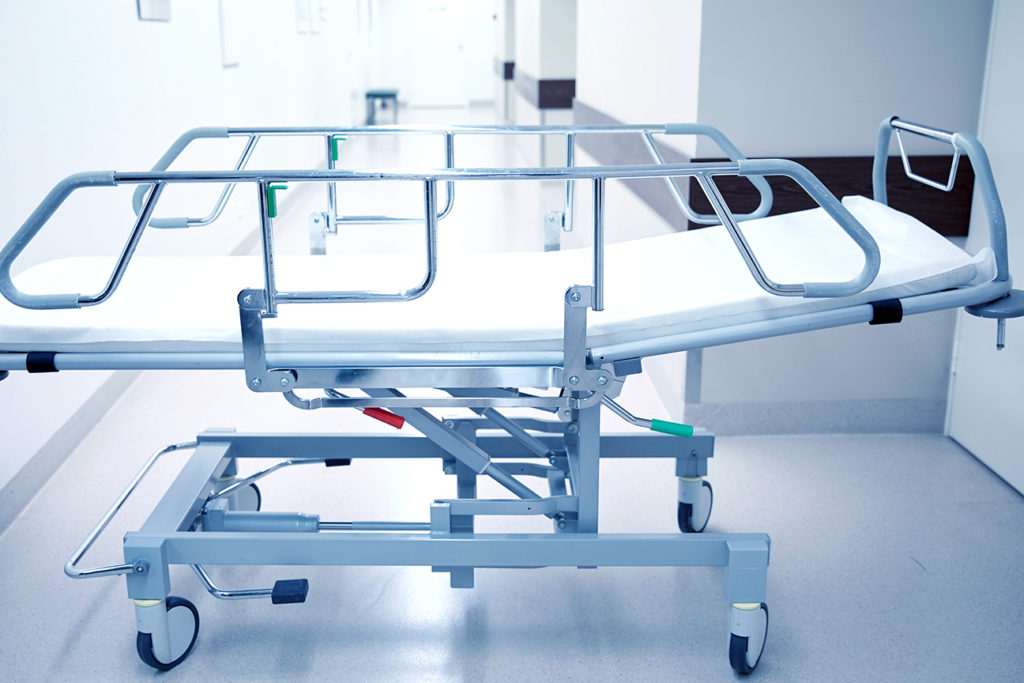
NEFF HEALTHCARE INSIGHTS
Why The Healthcare Industry Wants Patients To Heal At Home

The healthcare industry has a shocking message for patients: Please go home.
This relatively new trend in medicine is both data and dollar driven. It’s for the benefit of the patients’ health, as well as everyone’s pocketbooks.
This is because it’s vastly more expensive to provide care within the four walls of a hospital, in comparison to in-home treatment, and being in a crowded facility exposes patients to many illnesses they don’t yet have.
With advances in technology in terms of digital record access, remote video communication between patients and their doctors as well as improvements in mobile medical equipment, getting in-home care is not only convenient, it’s becoming state-of-the-art in its delivery.
Patients get treated with both medical assistance and dignity when they are receiving in-home care. They have flexibility and control of their own schedules, while receiving the powerful benefits of privacy, quiet and comfort their own home affords.
From the hospital system’s perspective, compensation directives have changed to the point where they are financially discouraged from keeping people too long in their facilities.
There is no per diem reimbursement for hospitals, which means they have already earned 95% of their potential patient revenues in the first days of treatment.
They are much better clearing the bed for a new patient, so they can make their next 95% earnings. With hospitals already suffering from over-crowding, they are largely incentivized to “turn the beds” just as a restaurant would want to turn its tables.
This hasn’t always been this way. In the past, 90% of hospital revenue would come from inpatient services. The remaining ten percent would come from outpatient treatment.
Now it’s much closer to 50% for each. With outpatient services, they are still making revenues from patients, without taking up precious in-hospital real estate.
This trend in healthcare is having an architectural impact. New for-profit hospitals are being designed and built with this shifting dynamic in mind.
More and more hospital facilities are being engineered without large emergency rooms and some with none at all. Instead, they are taking a minimalist approach with just a few intensive care beds to accompany surgery and diagnostic areas.
For those patients who can’t return home, hospitals are still going to seek out a more homelike setting to send them to, whether it’s assisted living or independent living centers.
With good monitoring and communication, and structured in a community setting, there is less likelihood the patient will need to come back to the hospital.
These shifts to in-home care are not only being applauded by the insurance industry and government agencies, it’s be driven by them.
With annual healthcare expenditures of six trillion dollars a year in the United States, which comprises one fifth of the nation’s economy, the industry finds itself in the mood for change.
This is not only because costs are skyrocketing, but health outcomes of the population are declining at a similarly obverse rate.
Sadly, and simply put: The more we spend, the worse healthcare results have become.
This is why in-home care is seen as a silver bullet for healthcare this decade. It just makes so much sense from all perspectives.
Patients much prefer in-home care and this preference provides for better healing. And, the healthcare industry benefits by providing improved results at a much higher level of profitability.
Are you in the healthcare industry? If so, how much of your business planning takes into consideration this market-driven expansion of in-home care?
If it’s not incorporated in a significant way, it might mean your plan is ripe for an update.
Stephen is a healthcare executive leader with over 35 years of progressive experience, including 25 years in CEO and CFO roles within large community hospital and senior care health systems.
Through his consultancy, Neff Healthcare, he serves entrepreneurs, investors and leaders facing mission-critical strategic and operational challenges in the healthcare industry. He would enjoy strengthening your vision and goals by providing his proven expertise of the health care market, strategic planning and execution proficiency, team building skills, communications, and philanthropy.
You can reach Stephen at stephen@neffhealth.com.
